
Shed Permits in Georgia: A Comprehensive Guide
Jared Reiff - January 10, 2024
☀️Summer Sale!!☀️
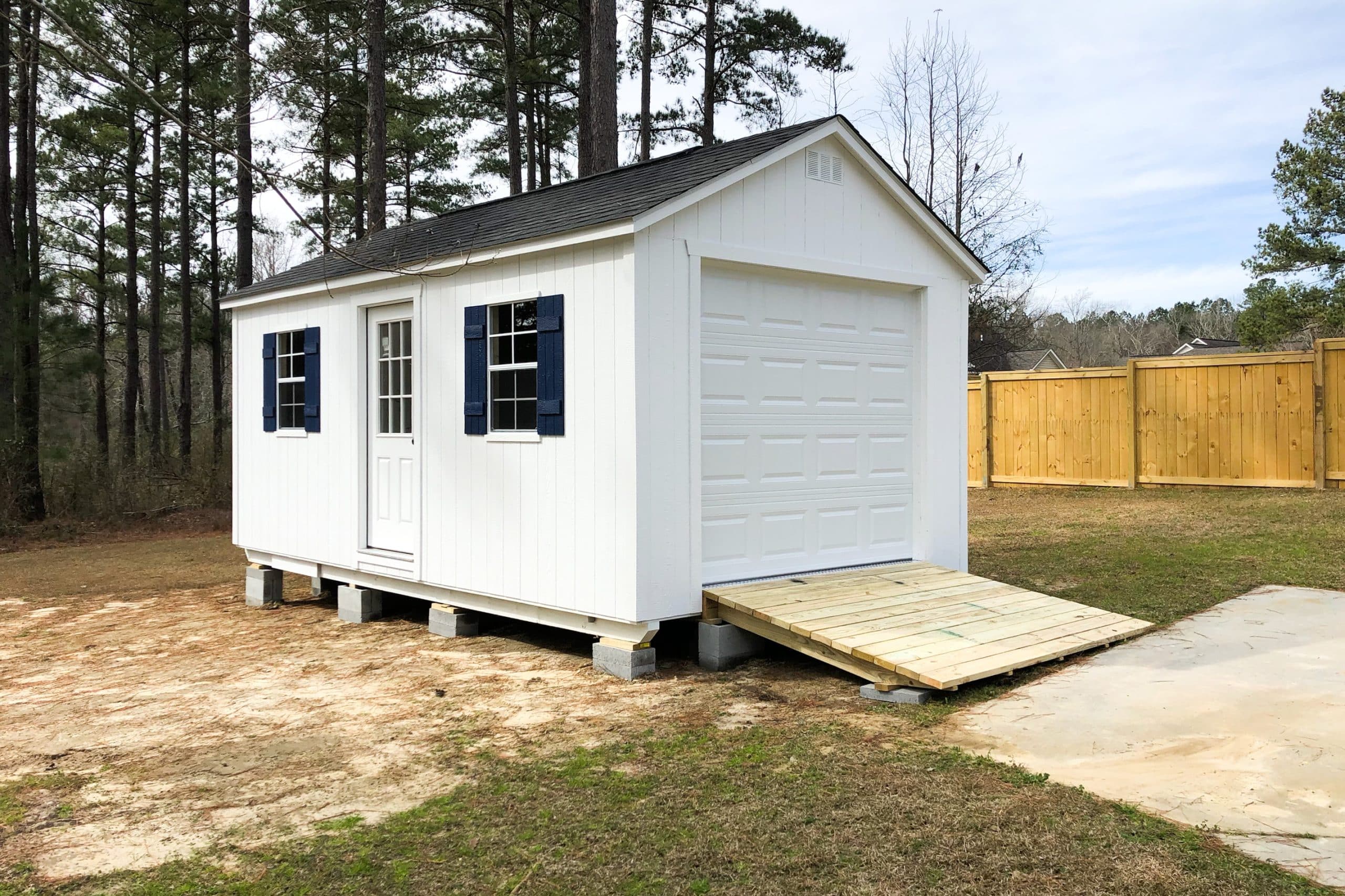
Shed Permits in Georgia – What You Need to Know
The world of building regulations and permits can be frustrating and confusing. Much of the information out there seems to be contradictory or just plain wrong. On top of that, the townships and counties providing the regulations often update or change rules. The regulations around shed permits in Georgia are no different.
We want to bring some clarity to the topic. In this blog, we’ll answer some of the most common questions surrounding shed permits in Georgia, as well as give you some resources where you can do your own research. Regulations can vary depending on location, so keep in mind it’s best to find the laws that apply specifically to your area.
Contents
What is a Shed Permit?

A shed permit is essentially permission from the local township, city, or county to build or place a shed on your property. Most buildings, from large commercial buildings to larger sheds cannot be built legally without a permit. A shed permit is the same as a building permit, only it’s specifically for a shed.
Do I Need a Shed Permit in Georgia?
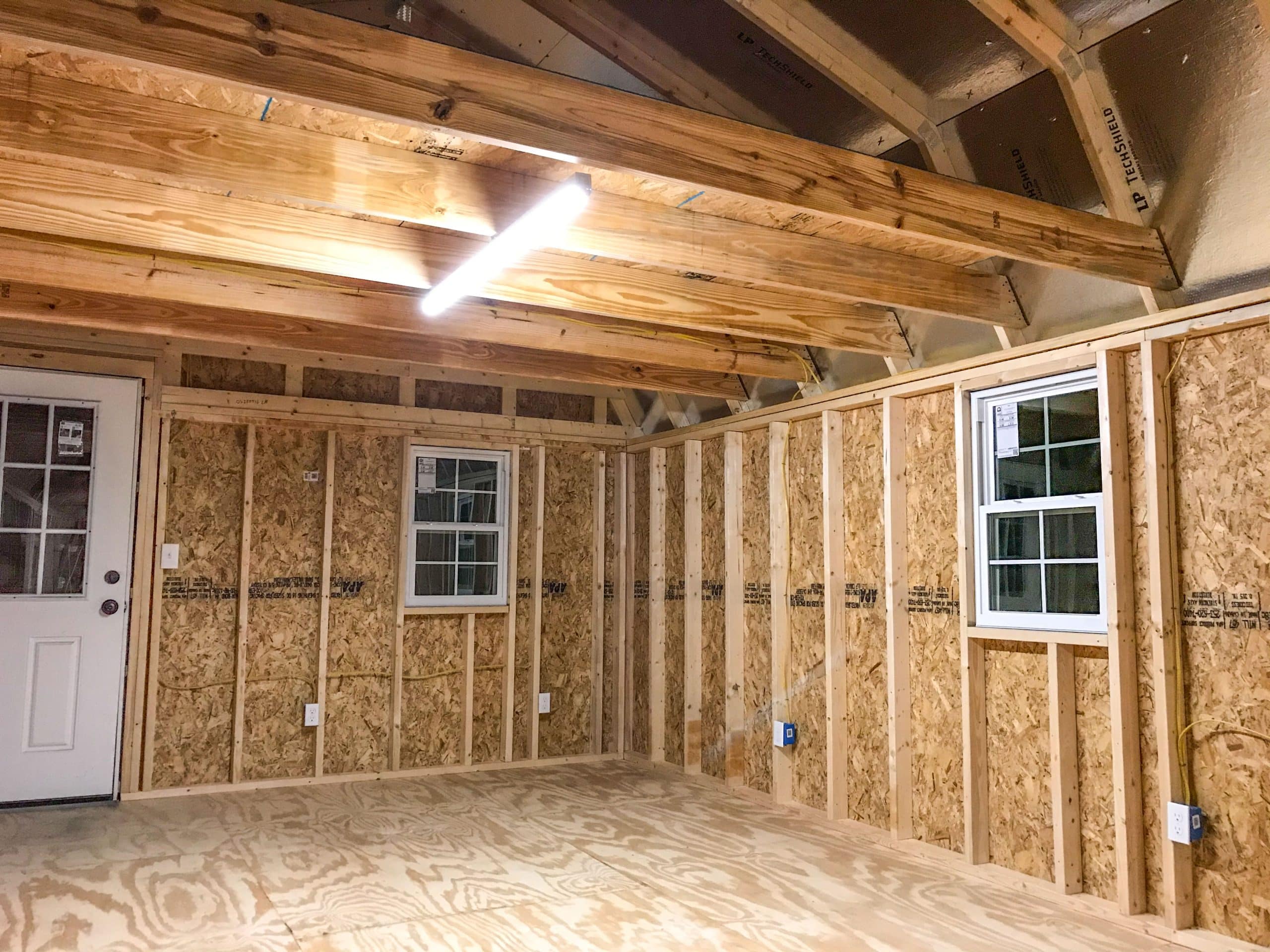
While it’s important to check with your local county, city, or township, most locations in Georgia only require a permit to build or place a shed if it’s 120 square feet or larger, or if it’s more than one story high.
There are also other factors that may determine whether or not a permit is needed to build a shed. These factors may change depending on locality.
Factors that determine if I need a shed permit in Georgia:
Size and height– As we mentioned before, most localities only require a shed permit if the shed is 120 square feet or larger, or if it’s more than 1 story.
Location– The regulations around sheds vary from area to area. If you live in a densely populated area, there may be more regulations that you’ll have to deal with. For example, you may be required to keep your shed a certain distance from a property line, or away from certain historical buildings or neighborhoods.
Intended use– There may be additional regulations, depending on the intended use of your shed. For instance, if you plan to convert your shed into a living space, there may be a different set of regulations you’ll be subject to, like those for a tiny home.
Electrical and plumbing– An additional permit may be required for your shed if you add plumbing or electrical. For example, some counties and cities require an electrical permit if you add wiring to your shed, even if it’s smaller than 120 square feet.
How do I get a shed permit in Georgia?
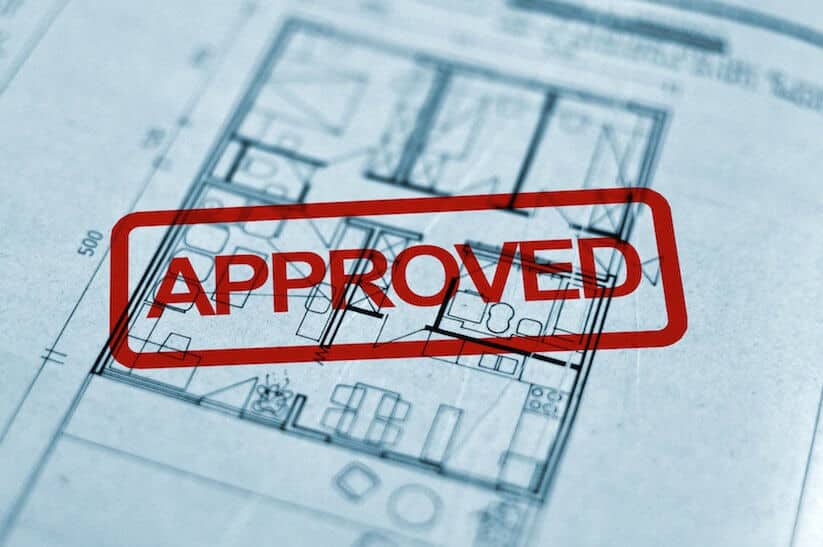
Again, the process may vary from location to location, but generally you’ll want to visit your local government’s website and download a form, or visit a government office in person and fill out an application there.
After that, you’ll need to wait a few days or weeks as the application is processed. If your application is accepted, you’ll need to pay a fee and you’ll have your permit!
Here’s a list of links to government websites of specific localities that Durastor Structures services, although it’s not a comprehensive list of our service locations. You should be able to apply for a permit from these websites, or find a phone number to call for specific information about how to get a permit.
How long does it take to get a permit for a shed in Georgia?
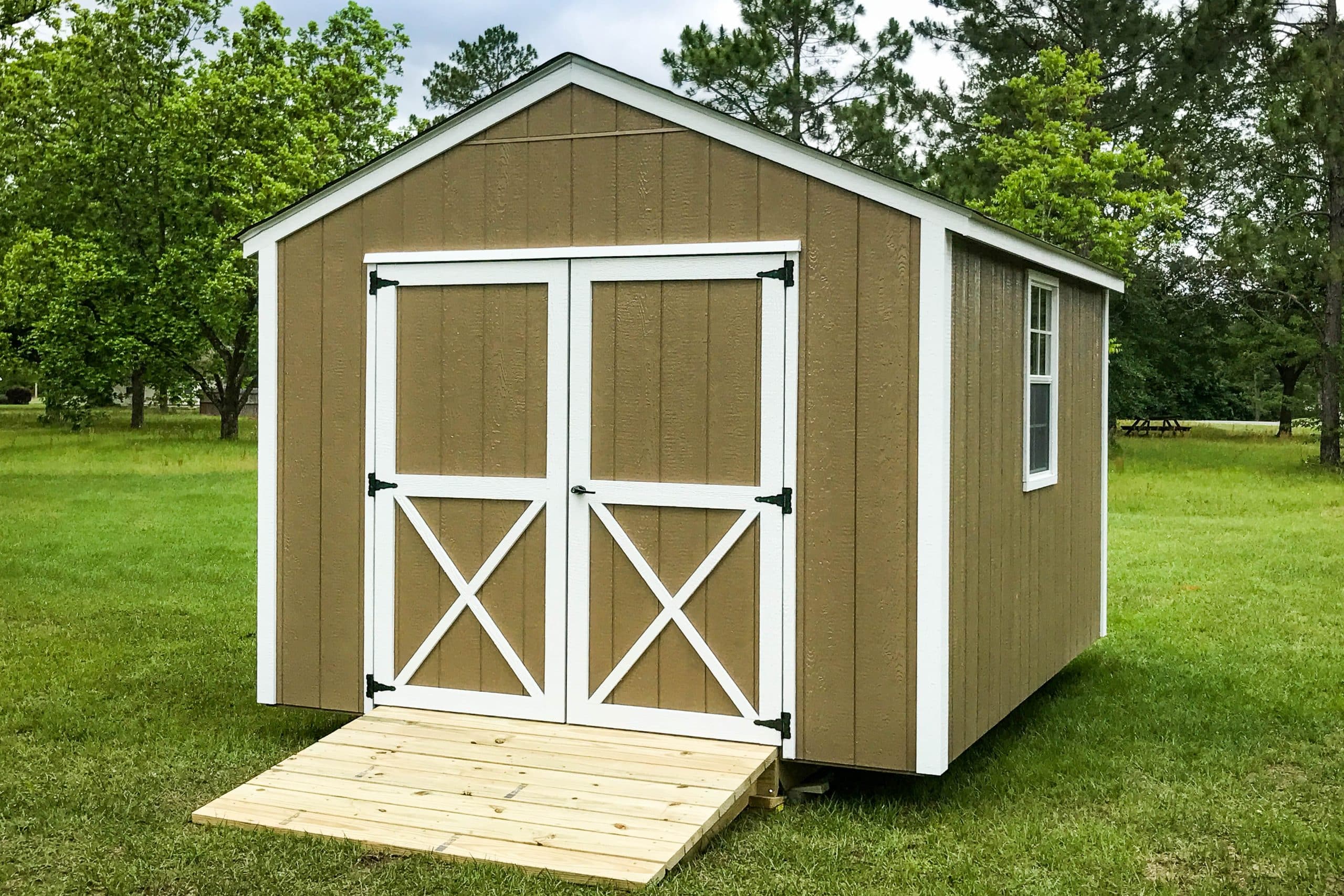
Getting a permit can be a process that takes anywhere from a few days to several weeks. Generally you’ll get your permit processed within 2 weeks, but it can take longer depending on the time of year and how busy the permit office is.
How much do shed permits in Georgia cost?

The cost of shed building permits is usually directly linked to the cost of the building itself. Generally shed permits in Georgia will cost 5$-7$ per $1,000 of the cost of the building. There is usually a minimum fee for each permit which can range from $50- $300.
Other FAQ’s
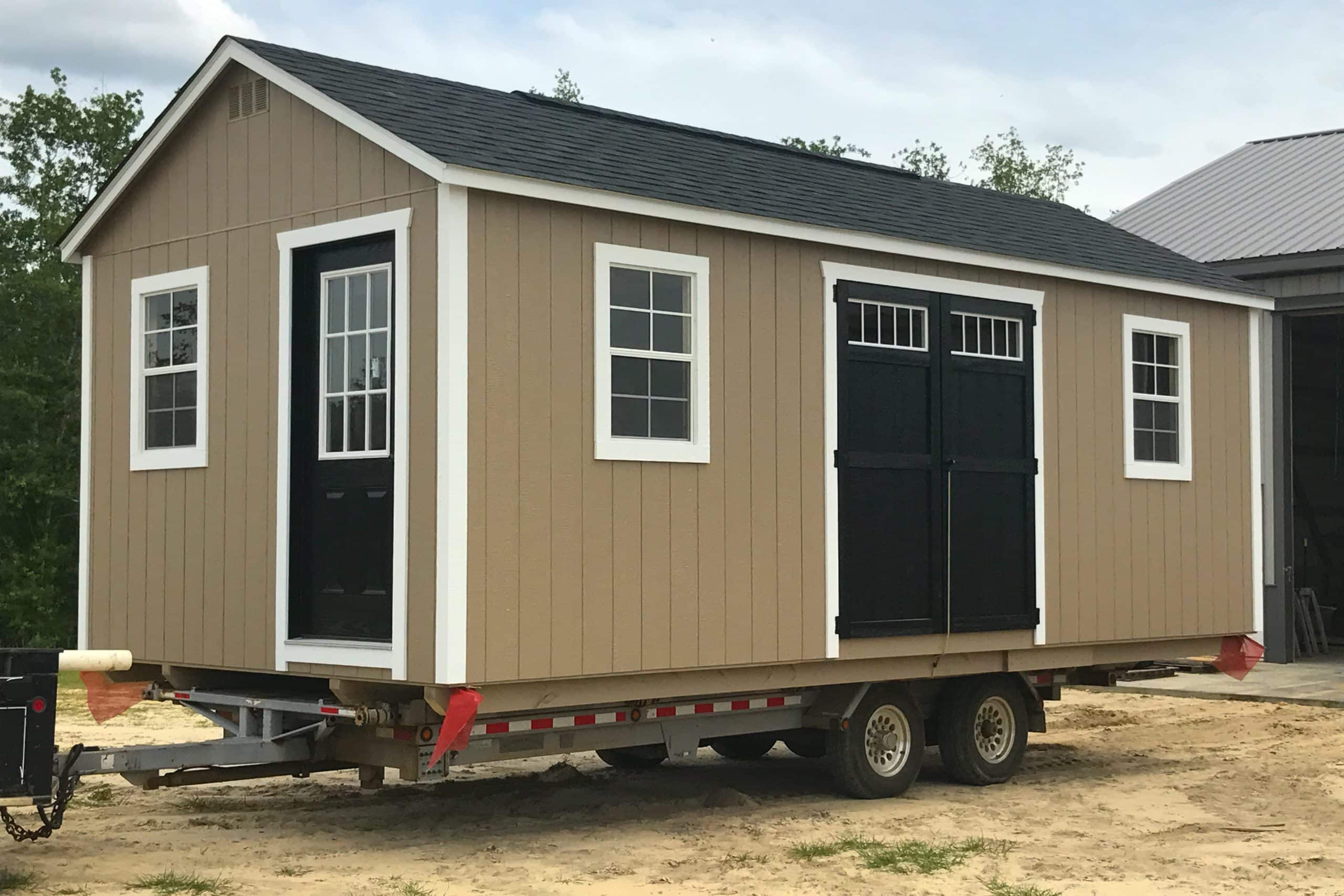
Can I live in a shed?
In most areas, a structure built for the purpose of storage cannot be used as residential housing. If you plan on converting a shed to living quarters, you’ll probably have to change the structure so it meets code requirements like those for tiny houses. If you’re interested in learning more about rules and regulations for tiny houses in Georgia, check out this blog.
Can I convert a shed into a home office?
Yes, you can. Converting a shed to a home office is generally less regulated than converting a shed into a tiny house, since it isn’t a full time living space. As always, it’s best to ask your local township or county, but converting an existing structure should be a pretty easy process.
Sheds from DuraStor Structures
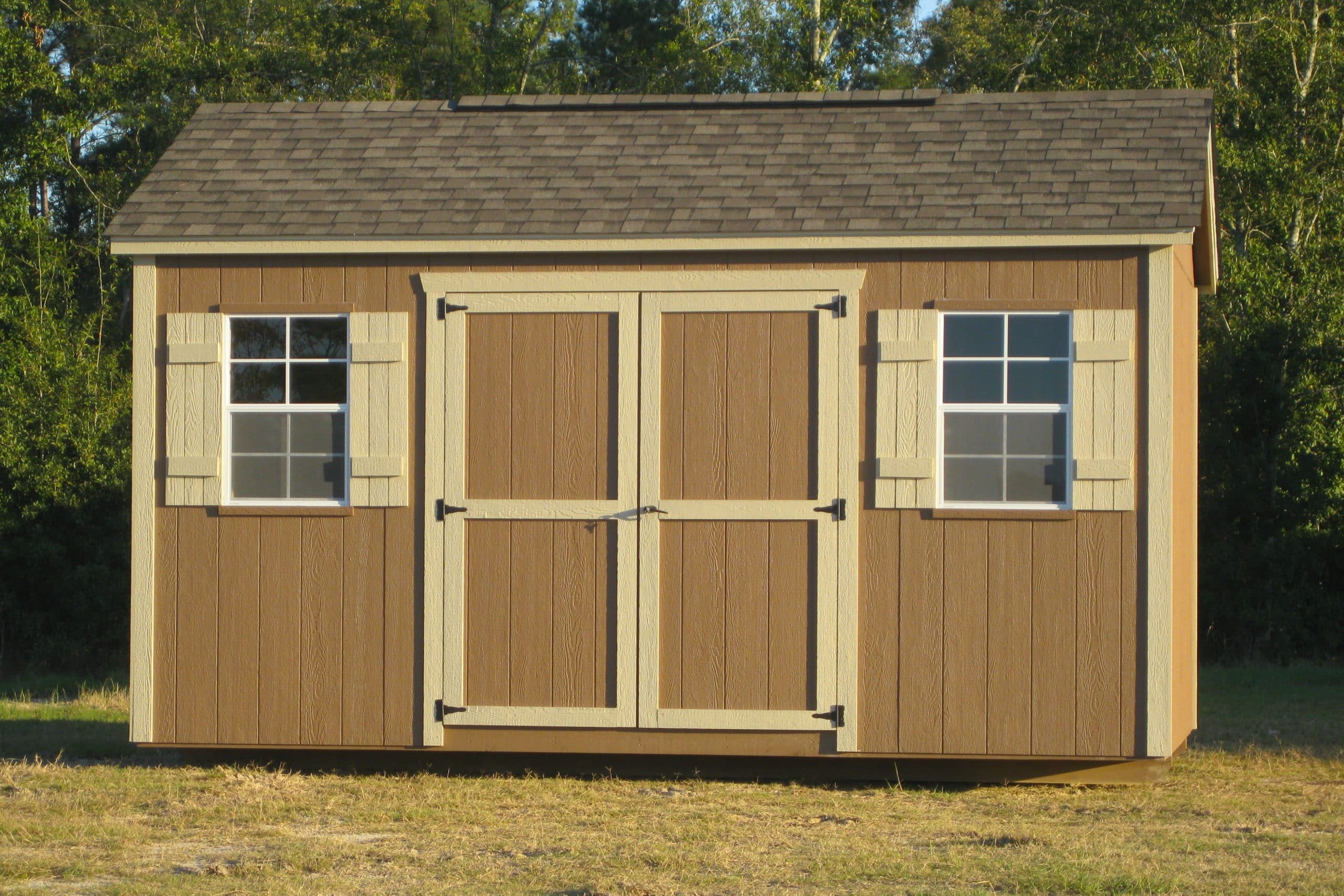
- The Garden Shed Max: One of our most popular buildings, this shed is loaded with useful features, as well as classic styling that fits in most environment
- The Utility Shed: If you want a shed that’s loaded with style, useful features, and value, than look no further.
- The Lofted Barn Max: This model features lots of overhead space, and is a perfect shed to convert into a workshop or other hobby space.
- The Garage Shed: With a strong, well-built floor, this shed is great for storing vehicles, small tractors, or other large, heavy items.
